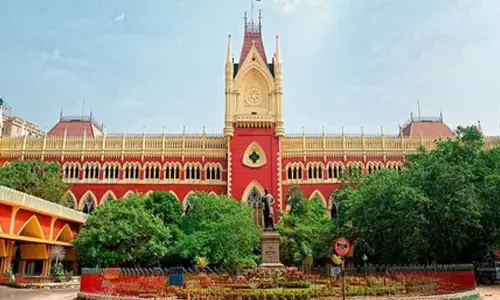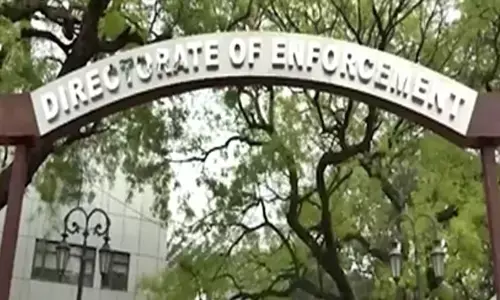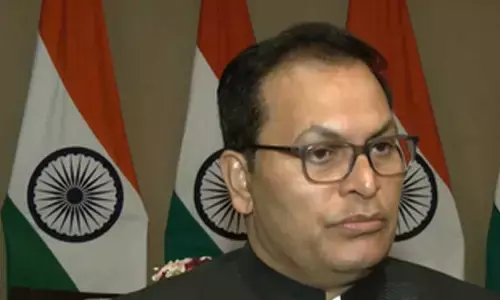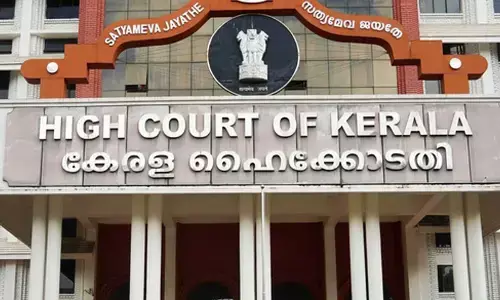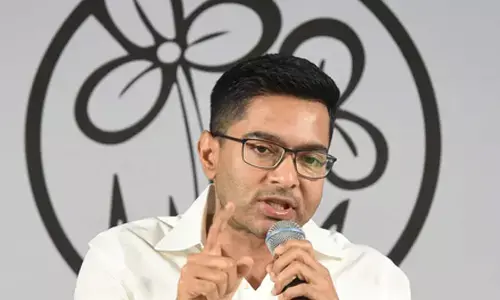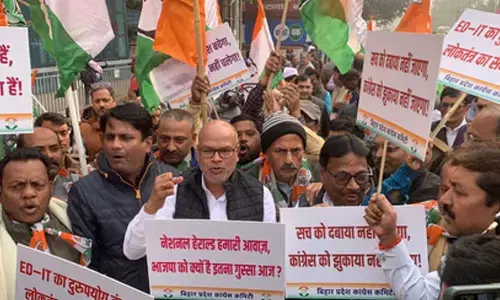Governance Failure and Humanitarian Crisis in Chinnonipalli: A Tale of Political Negligence and Public Suffering
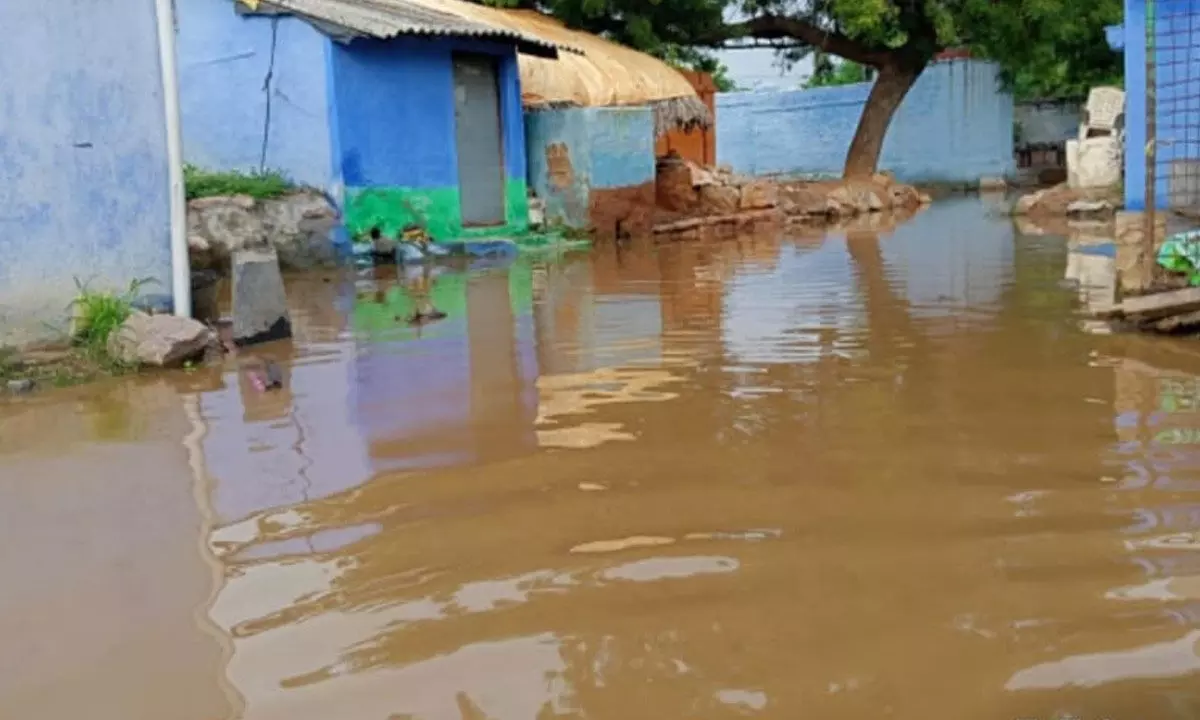
The twin crises unfolding in Chinnonipalli village of Gattu Mandal—flooding due to the incomplete Chinnonipalli reservoir and the invasion of venomous creatures—reveal a grave failure of governance and the devastating impact of political negligence on vulnerable communities
Gadwal: The twin crises unfolding in Chinnonipalli village of Gattu Mandal—flooding due to the incomplete Chinnonipalli reservoir and the invasion of venomous creatures—reveal a grave failure of governance and the devastating impact of political negligence on vulnerable communities. The situation has escalated to the point where lives are being lost, and the basic safety and survival of villagers are at risk, all while political leaders remain unresponsive.
#The Human Cost of Political Apathy
At the core of the issue is the Chinnonipalli reservoir project, which began in 2005 with the controversial goal of diverting Krishna River water from Telangana to Rayalaseema. The project was initiated without a proper irrigation plan, and now, nearly two decades later, it remains incomplete. The result has been catastrophic for the people of Chinnonipalli, who find themselves displaced and left to fend for themselves in increasingly perilous conditions.
As floodwaters engulf their homes, venomous creatures such as snakes and scorpions have invaded the village, putting lives at immediate risk. The tragic death of a young boy, Mallesh, due to a scorpion bite underscores the life-threatening dangers these villagers are facing. This incident has not only caused deep sorrow but also intensified the villagers' frustrations with the authorities' failure to act swiftly and decisively.
Despite the growing severity of the crisis, local authorities and political leaders have shown little urgency in addressing the villagers' plight. Instead, officials are caught in a web of political maneuvering, with no concrete action to alleviate the suffering of the affected population. The villagers, some of whom are now fleeing to nearby areas, feel abandoned and betrayed by a political system that has prioritized power struggles over public welfare.
#A Long History of Neglect
The current crisis in Chinnonipalli is not an isolated incident but the culmination of nearly two decades of neglect. The reservoir project, which was meant to bring prosperity through irrigation, has instead become a symbol of mismanagement and bureaucratic apathy. The affected farmers, displaced from their lands without adequate compensation, have spent years demanding justice. Prolonged protests, including a 452-day sit-in, were met with silence by the previous BRS government, which even attempted to forcibly evict the villagers without providing fair compensation.
The lack of progress on the reservoir project has left the displaced villagers in a state of limbo, forced to cultivate their lands under increasingly difficult conditions. The compensation packages, set in 2005, are woefully outdated, leaving many farmers unable to rebuild their homes or establish new livelihoods. The rising cost of construction materials and other essentials has only exacerbated the situation, making it nearly impossible for these farmers to move forward.
The government's failure to complete the project has also led to a host of environmental and safety issues, as the partially built reservoir has caused water to flood the surrounding areas, creating ideal conditions for dangerous wildlife to thrive. This has made life in Chinnonipalli not only difficult but also hazardous, with no immediate end in sight.
#Political Indifference and Public Outrage
One of the most troubling aspects of the Chinnonipalli crisis is the political indifference shown by elected leaders. Despite their promises of support during protests, current Congress leaders, now in power, have turned a blind eye to the villagers' demands. The community feels betrayed by those who once stood with them, only to abandon them once the political winds shifted.
The villagers are rightfully angry, as they continue to face daily threats to their lives and livelihoods, all while political leaders focus on asserting their dominance rather than addressing the issues at hand. The inaction of local officials, who remain paralyzed by political considerations, has only deepened the villagers' sense of abandonment. Their plight has become a symbol of how the political system can fail its most vulnerable citizens when those in power prioritize their own interests over the welfare of the people.
# The Need for Urgent Action
The Chinnonipalli crisis calls for immediate intervention from the government. The villagers have demanded the formation of an expert committee to investigate the reservoir project, assess the damage caused by its incomplete state, and propose solutions to ensure the safety and well-being of the affected population. The government must not only complete the reservoir but also revise the outdated compensation packages to reflect current economic realities. Adequate financial support for rebuilding homes, reclaiming lost land, and ensuring the safety of the village is essential.
Additionally, immediate steps must be taken to mitigate the risks posed by the flooding and the invasion of venomous creatures. The situation requires urgent relief measures to protect the community from further harm and prevent more tragic deaths like that of Mallesh. This is not just an environmental or engineering challenge but a humanitarian crisis that demands swift and decisive action.
# A Broader Lesson in Governance
The situation in Chinnonipalli is a sobering reminder of the consequences of political negligence and bureaucratic apathy. In a democracy, elected leaders are entrusted with the responsibility of serving the public, particularly in times of crisis. The ongoing suffering in Chinnonipalli demonstrates the devastating impact of ignoring that duty.
Governments and leaders must understand that their primary responsibility is to the people they serve. When communities are left to fend for themselves, as is the case in Chinnonipalli, it not only leads to human suffering but also undermines the very principles of governance. Political leaders must recognize that their inaction has real, tangible consequences, and failing to act in the face of such a crisis erodes public trust.
#Conclusion
The crisis in Chinnonipalli reflects a profound failure of governance, as political leaders and officials have neglected their duty to protect and serve the community. The incomplete reservoir project, coupled with the dangers posed by flooding and venomous creatures, has created a humanitarian emergency that demands urgent attention. The government must act quickly to resolve the reservoir issue, provide fair compensation to displaced farmers, and ensure the safety of the village. Only through decisive and compassionate action can the government restore trust and fulfill its obligations to the people of Chinnonipalli.









